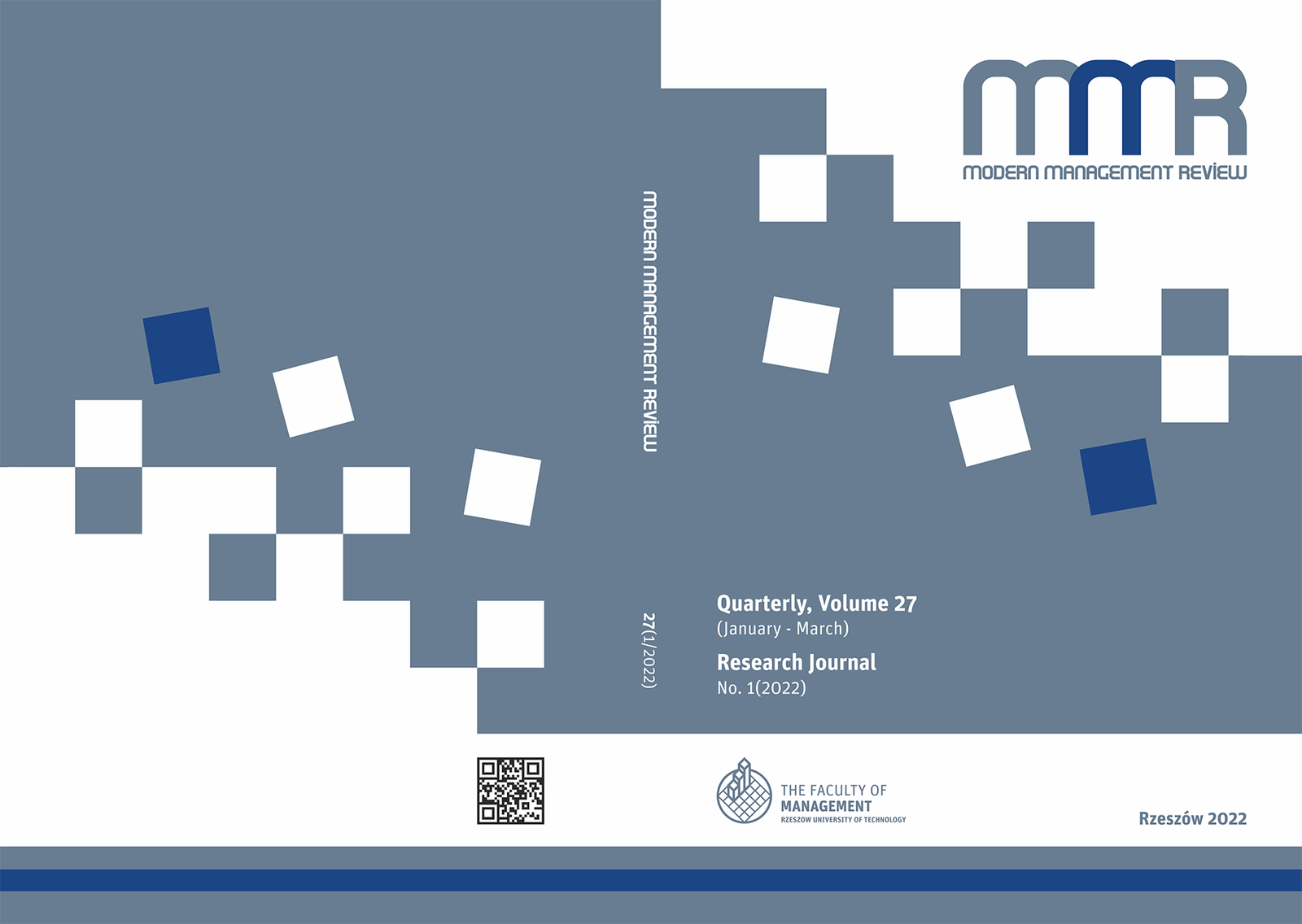Abstract
A good level of literacy in financial management has been viewed as crucial to enhancing the growth of small business. However, the level of knowledge and attitude of managers of these businesses remains unclear. This study determines the level of financial literacy among small business managers. Using a survey research design, the study covers small business enterprises in Ogun State, Nigeria. Primary data obtained through questionnaire were analysed. The results show that the overall level of attitude of small business owners to insurance and savings are low. Similarly, based on financial knowledge relating to financing sources and interest estimation are also low. The overall financial management practices among the owners are also not encouraging. The findings suggest a need for an improved level of financial literacy among business enterprises to sustain the growth of the sector.
References
Ackah, C., Owusu, A. (2012). Assessing the knowledge of and attitude towards insurance in Ghana. Access on the internet: http://yeungus.com/assessing-the-knowledge-of-and-attitude-towards-insurance-in-Ghana-free-related-pdf.html.
Alese, O. J. (2017). Strategic management and the development of small and medium enterprises in south-west, Nigeria. A Ph.D thesis of Olabisi Onabanjo University, Ogun state, Nigeria.
Amornkitvikai, Y., Harvie, C. (2018). Sources of finance and export performance: Evidence from Thai manufacturing SMEs. “The Singapore Economic Review”, 63(01).
Andoh, F. K., Nunoo, J. (2011). Sustaining small and medium enterprises through financial Service Utilization: Does Financial Literacy Matter? Access on the internet: http://ageconsearch.umn.edu/bitstream/123418/2/Sustaining%20SME%20article. pdf%20Jacob%20Nunoo1.pdf.
ANZ (with Social Research Centre) (2008). ANZ Survey of Adult Financial Literacy in Australia. Access on the internet: http://www.anz.com.
ANZ (with Roy Morgan Research) (2011). Adult Financial Literacy in Australia. Access on the internet: http://www.anz.com.
Agyapong, D., Attram, A. B. (2019). Effect of owner-manager’s financial literacy on the performance of SMEs in the Cape Coast Metropolis in Ghana. “Journal of Global Entrepreneurship Research”, 9. DOI: 10.1186/s40497-019-0191-1.
Arko-Achemfuor A. (2012). Financing small, medium and micro enterprises (SMMEs) in rural South Africa: An exploratory study of Stokvels in the Nailed Local Municipality, North West Province. “Journal of Social Anthropology”, 3(2).
Atakora, A. (2013). Measuring the effectiveness of financial literacy programs in Ghana. “International Journal of Management and Business Research”, 3(2).
Bosma, N., Harding, R. (2006). Global Entrepreneurship Minitor (GEM) 2006 Report. London. Babson College and London Business School.
Bruhn, M., Bilal, Z. (2013). Stimulating Managerial Capital in Emerging Markets: the Impact of Business Training for Young Entrepreneurs. “Journal of Development Effectiveness”, 5(2).
Central Bank of Nigeria (2015). National Financial literacy Framework. Access on the internet: http://cbn.gov.ng/out/cfpd/
Cole, S., Fernando, N. (2008). Assessing the importance of financial literacy. “ADB Finance for the Poor”, 9(2).
Eniola, A. A., Entebang, H. (2017). SME Managers and Financial Literacy. “Global Business Review”, 18(3).
Fatoki, O. (2017). The Financial Literacy of Micro Entrepreneurs in South Africa. “Journal of Social Sciences”, 40(2).
Fernandes, Lynch, Jr., Netemeyer, R. G. (2013). The effect of financial literacy and financial education on downstream financial behaviors. DOI:10.1287/mnsc.2013.1849.
Glaser, M., Walther, T. (2014). Run, Walk, or Buy? “Financial Literacy, Dual-Process Theory, and Investment Behavior” (April 16).
Hossain, M., Yoshino, N., Taghizadeh-Hesary, F. (2018). Local Financial Development, Access to Credit and SMEs’ Performance: Evidence from Bangladesh. ADBI Working Paper 906. Tokyo: Asian Development Bank Institute. Access on the internet: https://www.adb.org/publications/local-financial-development-access-credit-smesperformance-bangladesh.
Huston, S. J. (2010). Measuring Financial Literacy. “Journal of Consumer Affairs”, 44(2). DOI:10.1111/j.1745-6606.2010.01170.x.
Kauffmann, C. (2005). Financing SMEs in Africa, Policy Insights No. 7. OECD. Access on the internet: http://oecd.org/dev/insights.
Kotze, L, Smit, A. (2008). Personal financial literacy and personal debt management: the potential relationship with new venture creation. “South African Journal of Entrepreneurship and Small Business Management”, 1(1). DOI:10.4102/sajesbm.v1i1.11.
Lusardi, A., Mitchell, O. S., Curto, V. (2010). Financial literacy among the young. “Journal of Consumer Affairs”, 44(2). DOI:10.1111/j.1745-6606.2010.01173.x.
Lusardi, M., Mitchell, O. (2013). The Economic Importance of Financial Literacy Theory and Evidence. Access on the internet: http://arno.uvt.nl/show.cgi?fid=129675.
Lynch, J. G., Netemeyer, R, Spiller, S. A., Zammit, A. (2010). A generalizable scale of propensity to plan: The long and the short of planning for time and money. “Journal of Consumer Research”, 37. DOI:10.1086/649907.
Mandell, L., Klein, L. (2009). The impact of financial literacy education on subsequent financial behavior. “Financial Counseling Planning”, 20(1).
Mashizha, M., Sibanda, M., Maumbe, B., (2019), ‘Financial literacy among small and medium enterprises in Zimbabwe’, “Southern African Journal of Entrepreneurship and Small Business Management”, 11(1). DOI:org/10.4102/sajesbm.v11i1.241.
Miller, M., Godfrey, N., Levesque, B., Stark, E. (2009). The case for financial literacy in developing countries: Promoting access to finance by empowering consumers. Access on the internet: http://brigaders.wdfiles.com/local-files/professional%3Abusiness-project resources/Financial%20Literacy.pdf.
Nalini, G. S. (2011). Financial literacy of micro, small and medium entrepreneurs. “International Journal of Management Research Review” 1(5).
Nohong, M., Ali, M., Sohilauw, M., Sobarsyah, M., Munir, A. (2019) Financial literacy and competitive advantage: SME strategy in reducing business risk, 40(32).
Organisation for Economic Co-operation and Development (2005). Improving financial literacy: Analysis of issues and policies. Access on the internet: http://titania.sourceoecd.org/vl=4607980/cl=25/nw=1/rpsv/ij/oecd themes/9998007x/v200 5n30/s1/p1l.
Oseifuah, E. K. (2010). Financial literacy and youth entrepreneurship in South Africa. African Journal of Economic and Management Studies, 1(2): 164–182. https://doi:10.1108/
Refera, M. K., Dhaliwal, N. K., Kaur, J. (2016). Financial literacy for developing countries in Africa: A review of concept, significance and research opportunities. “Journal of African “Studies and Development”, 8(1). DOI: 10.5897/JASD2015.0331.
Sucuahi, W. T. (2013). Determinants of financial literacy of micro entrepreneurs in Davao City. “International Journal of Accounting Research”, 1(1). DOI:10.12816/0001127.
Wise, S. (2013). The impact of financial literacy on new venture survival. “International Journal of Business and Management”, 8(23). DOI:10.5539/ijbm.v8n23p30.
Ye, J., Kulathunga, K. (2019). How Does Financial Literacy Promote Sustainability in SMEs? A Developing Country Perspective. “Sustainability”, 11.

This work is licensed under a Creative Commons Attribution-NonCommercial-NoDerivatives 4.0 International License.
Copyright (c) 2022 Modern Management Review


